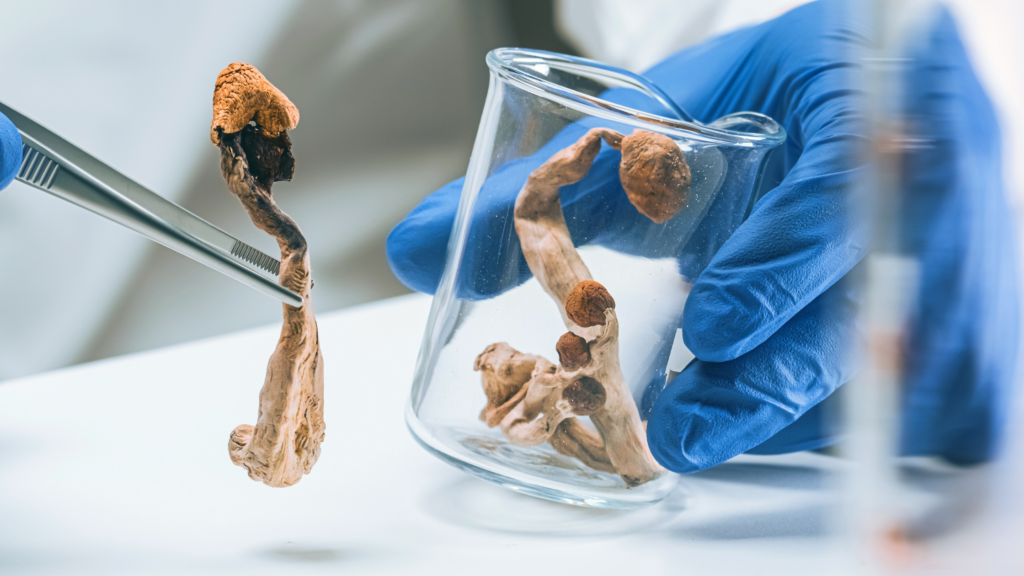Psychedelics are becoming increasingly popular in the medical field for their therapeutic effects. These substances offer a new perspective on mental health disorders that have not seen much success from traditional treatments options. This is an exciting development for me as a certified coach in the emerging psychedelics field. Until now, the focus has been on severe depression, PTSD and anxiety. But this latest example involves an oral psilocybin called TRP-8802 that is being tested in patients with binge eating disorder (BED), which involves recurring episodes of eating large quantities of food and feeling an inability to stop.
The findings are part of promising interim results for Tryp Therapeutics’ Phase II clinical trial for the treatment of BED with psilocybin-assisted psychotherapy. The biotechnology company, whose focus is developing intravenous-infused psilocin for diseases with high unmet medical needs, collaborated with University of Florida researchers. Significant and prolonged improvement was demonstrated in primary endpoints for all five patients who were observed. Most patients felt better after taking TRP-8802, which was well-tolerated and showed a favorable safety profile in all patients, as well as participating in integration sessions with psychotherapists. An immediate decrease in symptoms was reported after dosing and throughout a monthlong post-dosing measurement period during which patients had reduced overeating episodes, as well as decreases in weight and body mass index.
The trial’s first patient reduced overall anxiety, along with food anxiety and compulsion to overeat, but also improved self-image and confidence. Analysis of the other four patients reinforced these initial clinical observations. Daily BED episodes were reduced by an average of 80.4% from baseline during this timeframe. In addition, all patients exhibited a daily reduction in BED episodes of at least 60% from baseline hospital anxiety and depression scale anxiety and depression scores. It is estimated that 3.5% of females (nearly 4 million) and 2% of males (2 million) in the U.S. will develop BED, whose signs are found in nearly 30% of people seeking weight-loss treatments. If you or someone you know struggles with an eating disorder, this new treatment option might be worth considering.
Related Articles:
Study finds LSD very effective at reducing anxiety and depression
Insurance coverage for psychedelic treatments a bold move forward
